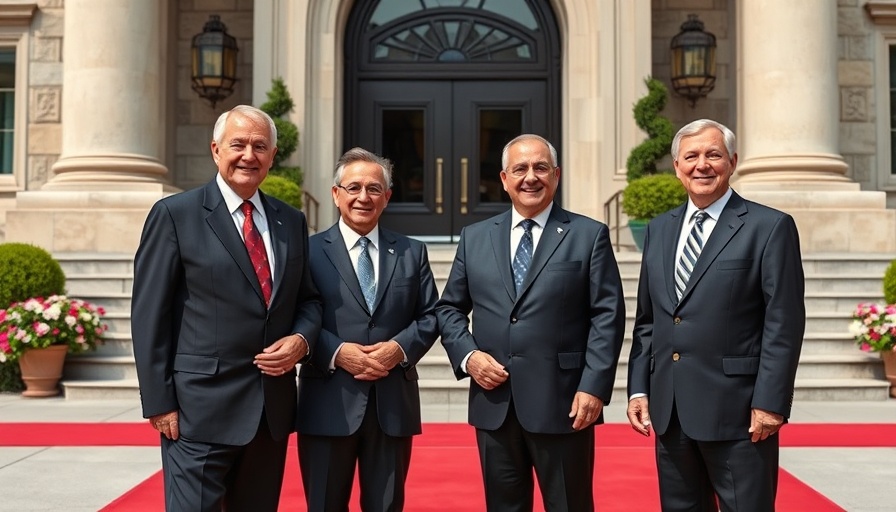
The Strengthening of South Africa and Austria's Diplomatic Ties
In an era where international cooperation is increasingly essential for overcoming global challenges, the recent diplomatic engagements between South Africa and Austria provide a promising example of how nations can build mutually beneficial relationships. Following a series of high-level meetings, South African President Cyril Ramaphosa and Austrian President Alexander Van der Bellen underscored their commitment to collaboration in crucial areas such as clean energy, tourism, and cultural exchange. This dialogue does not merely reflect the strengthening of ties between two countries; rather, it symbolizes a shared vision for a more sustainable and interconnected future.
In 'South Africa, Austria agree to strengthen ties,' the discussion dives into the significance of their evolving relationship, prompting an exploration of its broader implications.
Economic Stakes: South Africa as Austria’s Key Trading Partner
South Africa stands out as Austria's largest trading partner in Africa, accounting for nearly one-third of Austria's exports to the continent. Such statistical data is not merely numbers but reflects a profound economic interdependence. As the African economy continues to evolve, South Africa's pivotal role as an import-export hub illustrates the potential for deeper engagement across sectors. This strategic partnership could set the stage for Austria to leverage South Africa’s unique position within the African Union and tap into emerging markets, thus enhancing Austrian business outreach in the southern hemisphere.
Cultural Connections: Bridging Two Nations Through Exchange
The cultural exchanges mentioned by both leaders signify a commitment that transcends mere economic interests; they aim at cultivating mutual understanding and respect. Cultural diplomacy can profoundly impact international relations, enabling nations to build rapport and foster peace. From arts to education, fostering soft power through cultural engagement can lead to stronger national identities and promote global citizenship. The emphasis on cultural exchange could also pave the way for increased tourism—a sector that many nations, including Austria and South Africa, rely on heavily for revenue generation.
Implications for Democracy and Good Governance
President Van der Bellen noted South Africa’s role as a beacon of hope for countries transitioning to democracy, highlighting its significant strides since the end of apartheid. This observation denotes a recognition of South Africa's political journey as one that holds lessons for governance in other nations. For professionals involved in political science and public policy, such an endorsement from a foreign leader can reinforce the understanding that nurturing democracy is an ongoing process requiring international support and collaboration.
Future Predictions: The Road Ahead
As global challenges such as climate change and economic disparity intensify, the cooperation between South Africa and Austria could spark a broader trend of multi-national collaborations. With leaders committed to renewable energy and sustainable tourism, there is a significant opportunity for both nations to lead by example. Environmental considerations will likely be a cornerstone of future discussions, particularly given the ongoing urgency for climate action worldwide. This partnership could inspire other nations to forge similar agreements, thus amplifying the impact on global sustainability efforts.
A Call to Action for African Nations
The successful engagement between South Africa and Austria serves as a model that other African nations can emulate. Encouraging leaders across the continent to recognize their interconnectedness is vital for addressing challenges that require collective action, such as trade barriers and infrastructural deficits. As African economies continue to develop, the hope is that partnerships like this will not be isolated incidents but rather the norm that ushers in an era of collaboration.
Conclusion: Why This Matters
Understanding the intricacies of international relations, such as those between South Africa and Austria, provides critical insights into the dynamic landscape of global diplomacy. As professionals, it becomes imperative to track these developments and discern their implications for our own governance, economic policies, and societal interactions. The avenues for trade, culture, and democracy outlined in these recent discussions point to a future ripe with possibilities for enhanced cooperation across continents. Monitoring news from Africa, especially as it pertains to such partnerships, remains essential to informed discourse and decision-making.
 Add Row
Add Row  Add
Add 




Write A Comment